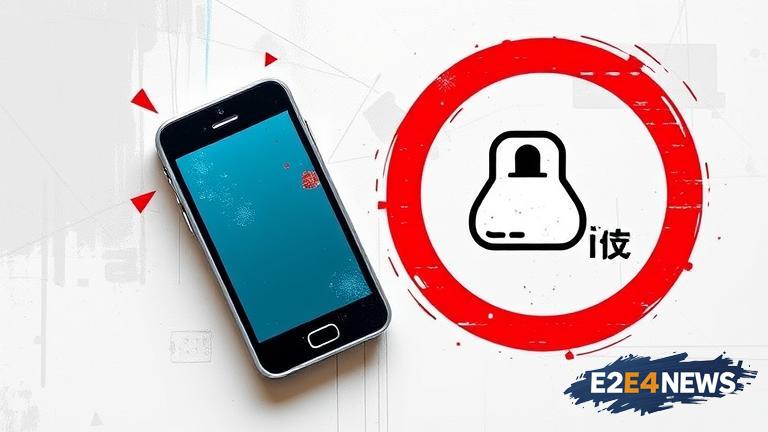In today’s digital age, mobile phone security is more important than ever. With the rise of cybercrime and identity theft, it’s essential to take proactive measures to protect your personal data. One of the most effective ways to do this is by implementing robust security measures on your phone. This can include using strong passwords, enabling two-factor authentication, and installing reputable antivirus software. Additionally, being cautious when clicking on links or downloading attachments from unknown sources can help prevent malware and phishing attacks. It’s also crucial to keep your operating system and apps up to date, as newer versions often include security patches and bug fixes. Furthermore, using a secure lock screen, such as a PIN or fingerprint recognition, can add an extra layer of protection. Another important aspect of mobile security is being mindful of public Wi-Fi networks, which can be vulnerable to hacking. To mitigate this risk, consider using a virtual private network (VPN) when accessing public Wi-Fi. Moreover, regularly backing up your data can help prevent losses in the event of a security breach or device theft. It’s also a good idea to use a phone tracking service, such as Find My iPhone or Google’s Find My Device, to locate your device if it’s lost or stolen. In the event of a security incident, having a plan in place, such as knowing how to remotely wipe your device, can help minimize damage. Moreover, being aware of the latest mobile security threats and trends can help you stay ahead of potential threats. For example, being cautious of suspicious texts or calls, and not responding to unsolicited messages, can help prevent smishing and vishing attacks. It’s also essential to monitor your accounts and credit reports for any suspicious activity, and to report any incidents to the relevant authorities. By taking these crucial phone security measures, you can significantly increase the difficulty for thieves to access your personal data, and ensure a safe and secure mobile experience. In addition to these measures, it’s also important to stay informed about the latest mobile security best practices, and to regularly review and update your security settings. This can include adjusting your privacy settings, such as limiting the amount of personal data shared with apps, and being mindful of the permissions you grant to apps. By being proactive and taking a comprehensive approach to mobile security, you can protect your personal data and prevent financial losses. In conclusion, mobile phone security is a critical aspect of modern life, and by implementing these essential measures, you can significantly reduce the risk of your personal data being compromised. With the ever-evolving landscape of mobile security threats, it’s essential to stay vigilant and adapt to new challenges as they arise. By doing so, you can ensure a safe and secure mobile experience, and protect your personal data from falling into the wrong hands. Mobile security is an ongoing process, and by prioritizing it, you can enjoy the benefits of mobile technology while minimizing the risks. Ultimately, the key to effective mobile security is a combination of awareness, education, and proactive measures, and by taking these steps, you can significantly boost your phone’s security and protect your personal data.
